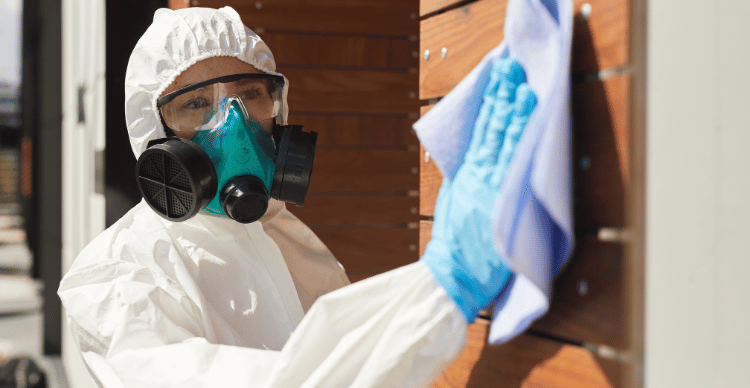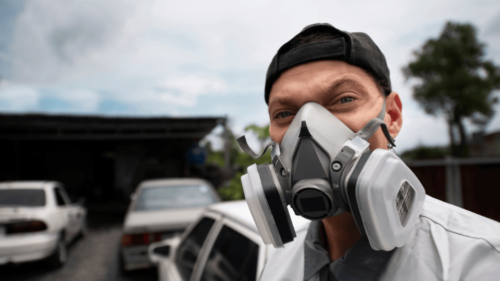When disaster strikes, being prepared can make all the difference, and one often
overlooked aspect of emergency preparedness is respiratory protection. Respirators
are vital tools that protect against a range of airborne hazards—from chemical spills
to wildfire smoke and biological threats. In emergencies, the air can become a
hidden danger, filled with unseen particles and gases that can pose serious health
risks. This blog post will explore why having the right respirator is crucial for your
emergency kit and how it can save lives in critical situations.
Understanding Different Emergencies That Require Respirators
Respirators are essential in various emergency scenarios where air quality is
compromised. Here are some of the key situations where having a respirator can be
critical:
Chemical Spills
When hazardous chemicals are released into the environment due to spills or
industrial accidents, toxic fumes can pose immediate health risks. Respirators
designed to filter out chemical vapours are necessary to prevent inhalation of these
dangerous substances.
Wildfires
Wildfires produce a significant amount of smoke and ash that can carry far beyond
the fire itself, affecting air quality over vast areas. Particulate respirators, such as
N95 masks, are crucial in these situations to filter out fine particles in the smoke that
can damage the respiratory system.
Biological Threats
During epidemics or outbreaks of airborne diseases, respirators become a line of
defence against viruses and bacteria. Full-face or half-mask respirators with
appropriate filters can help prevent the spread of infectious agents.
Industrial Accidents
Industries involving heavy machinery and hazardous materials can sometimes
experience accidents that release particulates, gases, or vapours into the air.
Workers and emergency responders need proper respiratory protection to safely
manage these incidents.
Each of these situations demonstrates the crucial role of respirators in protecting
individuals from a range of airborne threats that can arise suddenly and with little
warning.
How to Incorporate Respirators into Emergency Kits
Having a respirator in your emergency kit is crucial, but it’s also important to ensure
it’s ready to use when needed. Here’s how to properly incorporate and maintain
respirators in your emergency preparedness:
Selecting the Right Respirator for Your Kit
● Identify Potential Hazards: Consider the most likely emergencies you may
face based on your location and personal circumstances. Choose a respirator
that provides adequate protection against those specific threats.
● Include Spare Filters: For respirators that require filters, include a set of spare
filters in your emergency kit. This ensures you can replace them if they
become clogged or after extended use during an emergency.
Storage and Maintenance
● Check Expiry Dates: Like many emergency supplies, respirators and their
components have shelf lives. Regularly check and replace expired items to
ensure they remain functional when needed.
● Store in Accessible, Sealed Containers: Keep your respirator in a sealable bag
to protect it from moisture and dirt, and place it in an easily accessible part of
your emergency kit.
● Regular Inspections: Periodically inspect your respirator for any signs of
damage or wear. Practice wearing it to familiarise yourself with the fit and
function, ensuring it’s comfortable and properly sealed.
Training and Familiarity
● Practice Wearing It: Don’t wait for an emergency to try on your respirator for
the first time. Periodic practice will help you put it on quickly and correctly in
stressful situations.
● Educate Family Members: Make sure everyone in your household knows
where the emergency kit is stored and how to use the contents, including the
respirator.
Including a respirator in your emergency kit is a step toward comprehensive
preparedness. By selecting the appropriate respirator, maintaining it properly, and
ensuring everyone in your home is familiar with its use, you can enhance your
readiness for any emergency.
Conclusion
Emergencies can happen at any time and often come with little warning. Having a
well-prepared emergency kit, including a properly selected and maintained respirator,
can significantly increase your chances of staying safe in hazardous situations.
Respirators are not just tools for professional responders; they are essential for
anyone who wants to be fully prepared for potential emergencies. By taking the steps
to incorporate a respirator into your emergency preparedness, you’re not just
planning; you’re protecting your health and the well-being of your loved ones.
Is your emergency kit ready to handle the unexpected? Don’t overlook the importance
of respiratory protection. Visit GVS Malaysia to explore our range of high-quality
respirators and get expert advice on choosing the right model for your needs.
Prepare today to ensure safety tomorrow.



